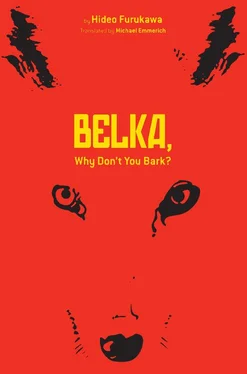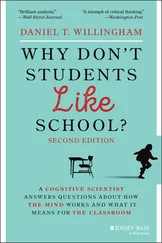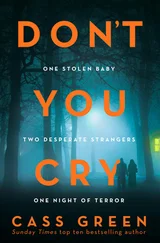It was on a shelf. Displayed. Set out to be seen, regarded. Revered.
That, the girl sensed, was the most important thing in the room.
She knew it right away.
So she went to take it in her hands.
She walked around the table, reached out. She picked it up. She had expected it to be fairly heavy, but it was surprisingly light. It felt like metal, though. It felt old. She had assumed it would be hollow like other globes, but it didn’t seem to be. She turned it in her palms. Rotated the earth. It was bigger than her head.
She sensed it. This isn’t empty.
She sensed it. There’s something here.
She sensed it. Something alive .
But what?
Is it… inside?
She turned it in her palms, looking for a seam. The northern and southern hemispheres looked like they might crack apart. That was the line. Ever so carefully, she opened it. And out it came. Bone. An animal’s skull. It looked like it had been burned… bits of skin or something clinging to it, hanging. Skin like a mummy’s, desiccated.
…what the hell?
Are you kidding me?
Number 47 was trying to communicate something. Trying to tell her something. It had nothing to do, however, with the skull in the globe. He was trying to draw her attention to the figure now standing in the doorway. No, not the figure—the figures. Like the girl and number 47, they were two: a person and a dog.
A person and a dog, both old.
At number 47’s urging, the girl turned around.
“You have opened the coffin, have you?” the old man said.
“What… the hell?” the girl said.
“You wanted to hold it? Is that it, girl?”
The dog standing beside the old man was very old. The girl remembered him, of course—she had seen him before. He was fairly large, stately. This was the same dog that had barked down at her once before, from the roof.
“You wanted to touch the very first dog?” the old man said in Russian. Then, “But it is not Belka, you know.”
“I didn’t break it,” the girl said in Japanese. “I just opened it.” Then, suddenly realizing what was inside, she continued. “Fuck, you asshole, keeping a fucking creepy skull like this, hidden in this thing. What is it… a fucking dog? Is that what this is, you Old Fuck?”
“That is the first great Soviet hero. A dog who did not make it back to the earth alive. Those are her remains. That is not Belka.”
“What the fuck are you saying?” the girl asked.
The old man pointed to the old dog beside him. He looked the girl in the eye.
“This is Belka,” he said.
“It’s a dog, isn’t it… a fucking dog’s skull.”
“You understand, little girl? He is the one dog I did not kill, the year before the Soviet Union, the Homeland, disappeared. I let him go. This Belka. I could not bear to destroy the bloodline I helped to create with my own hands. And yet that was what they ordered me to do.”
“Why do you have a dog’s skull in a shrine? Like some dog religion…”
“That was what Russia ordered me to do. Russian history. I betrayed history. I entrusted this Belka to her, the woman who looks after you, your nurse. I wanted to let him live out his life, nothing more. I had no intention of reviving his line. I did not. I had retired. I was serious about my retirement.”
The old man advanced two or three steps into the room.
This time he pointed down at number 47.
The girl stepped closer to her dog, as if to protect him. Without thinking about what she was doing, she lifted the skull up and rested it on her head.
She was holding it in both hands. Over her head.
“See,” the girl said. “Kind of spiritual, right? Kind of religious?”
“Very amusing.” The old man chuckled.
Number 47 sat like a good dog.
“You are going to put that on, are you?” the old man said in Russian.
“What were you saying about Forty-seven?” the girl shot back in Japanese.
“As it happens, number forty-seven is the child of this Belka. Is that not right, old boy?”
The old man turned to look at Belka. The old dog barked in reply.
“He is old, but he still had what it took, luckily. We made it just in time.”
“Forty-seven is related to that old shit? Is that it?”
“I have the feeling we are getting through to each other. You understand me, little girl? You, with the skull of that great dog over your head, like a dog-clan shaman. Do you understand what I am saying? Seven puppies were born. A new generation. One of them will be our Belka. Or Strelka, if it is a bitch. That will be the name of the leader. Once they graduate from number to name. And number forty-seven may be the one, the next Belka, it looks to me. The possibility is there. There is a good chance.”
“He does look like him, come to think of it. Are you saying that old shit is his dad?”
“He is Belka,” the old man said, nodding at the old dog, to the girl.
And right away, the girl replied, “BEL-kah.”
“That is right. And you know what? I had a feeling. In this new litter there is no bitch who is fit to be the next Strelka. Number forty-seven might be the next Belka, but there is no Strelka—not, at any rate, among the dogs. None of them will take that name. And you know why not? Because—” For the third time he pointed, this time at the girl. “Because I am giving that name to you.”
Hey, dick, the girl, X years old, barked. She glared at the old man. Don’t fucking point your finger at me.
“Because you are Strelka,” the old man said, chuckling.
He had given the girl a dog name.
1958–1962
(Year 5 Anno Canis)
Dogs, dogs, where are you now?
1958. Still the world was divided along the same lines. Every patch of ground across the surface of the earth had been categorized as belonging to one of two ideologies. Either you were communist or you were capitalist. Or else you wanted to be one or the other. Except for you, dogs—you belonged to both sides.
First of all, four dogs entered communist territory. Three became Chinese. Originally American, these purebred German shepherds were captured on the Korean Peninsula by the People’s Liberation Army. They had been the pride of the US Army, part of the military dog elite: Jubilee, News News (aka E Venture), and Ogre, siblings by different mothers. They had been fathered by Bad News, which meant that their grandparents, on their father’s side, were Masao and Explosion. That was their lineage. And now they were Chinese. The last of the four dogs belonged to Kita’s line. But while his lineage could be traced back to Kita, a Hokkaido dog, his blood was far from pure; he was an Arctic mongrel, a “hybrid breed.” A wolfdog. And so far, he belonged to no nation. He was on Soviet land and was destined eventually to become a Soviet dog, but for now, in 1958, he still had no experience of the thing we call a nation.
Anubis, there you were on the Eurasian continent.
On that vast expanse of land, in Soviet territory.
But this was the Arctic. You hadn’t yet left Far East Siberia, though it was only a matter of weeks before you would. Already you had moved away from the coast of the East Siberian Sea, crossing the Kolyma River. You, Anubis, were pulling a dogsled. And in a little more than a year—between December 1956 and the beginning of 1958—you had passed from your fourth master to your fifth, and from your fifth to your sixth. Why? Because there was something wrong with you. It had nothing to do with your abilities; you were extraordinarily capable. Your senses were more acute than those of any ordinary dog, and you could anticipate all kinds of danger before they appeared. You identified passable routes faster than your masters, dashed easily over the most arduous terrain. You were a magnificent sled dog. The problem, Anubis, was that the dogs you ran with feared you. Most of the dogs in Far East Siberia were Russian Laikas. You weren’t at home in that environment. Or rather, you were—but only at first. In the beginning, things went smoothly. Because people trusted you and you communicated well with them. Because you always tried to do your duty. The problem was that face of yours… your mien. You were nothing like the others. You were no ordinary dog. Something in you was decidedly different.
Читать дальше












